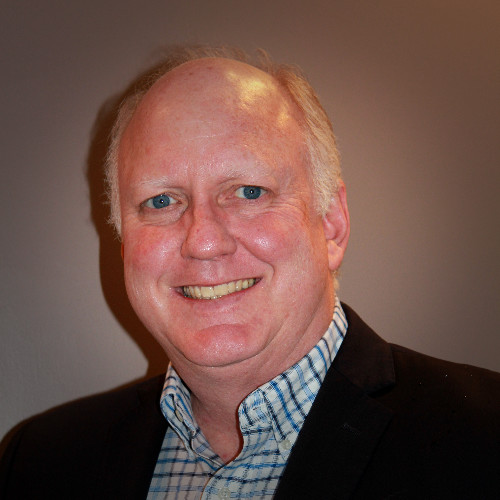Michigan Epi Jim Collins Reflects on His Career and What ‘Community’ Means to Him
By Ben Warden, CSTE Staff
Welcome to National Public Health Week 2023! In recognition of today’s theme, Community, we’re kicking the week off by interviewing Jim Collins, MPH, RS, Director of the Communicable Disease Division of the Michigan Department of Health and Human Services (MDHHS). Jim is also the CSTE Surveillance and Informatics Steering Committee Vice Chair. He discussed his career as an epidemiologist and what ‘community’ means to him. Note: This interview has been edited for length and clarity.
Q: What led you to being interested in epidemiology?
A: Back in the early '80s there wasn't much in the news about epidemiology. I was attending Alma College, a small liberal arts school in Michigan, and took a microbiology class that touched on the transmission dynamics of various infectious diseases. It was interesting to me and illustrated a connection between biology and math. At the time, I just wasn't sure where I wanted to go with it. I did know one thing; I've always wanted to see if I could make a positive difference. When I started reading about epidemiology, it made a lot of sense for the work I wanted to do. After graduating from Alma College, I decided to continue my education with an MPH program at the University of Michigan School of Public Health.

Q: What was the landscape for young epis back then?
A: When I finished graduate school, the job market for epidemiologists was not nearly as open as it is right now. At the time, I knew I wanted to go into a career focusing on infectious disease, recognizing it would be challenge. A lot of folks thought infectious disease was passé because of antibiotics and other medical advancements. As we’ve since learned, infectious disease epidemiology will always be an important and dynamic field and that’s one of the reasons that I’m glad to be part of it.
Q: How did you come to join CSTE?
I was an epidemiologist at the local level for about eight years, but I didn’t learn about CSTE until I worked at the state level. Our State Epidemiologist at the time, Dr. Matthew Boulton, recruited me to come work for the state and encouraged my involvement with CSTE.
Throughout my career at the state health department, our administration has continued to promote engagement with CSTE. I believe they agree that it contributes to our national public health voice and allows for information sharing that serves the greater good of the department and country. I’ve found that to be absolutely true and I'm grateful for it.
Q: Take me through a typical day?
A: I am the Director of the Communicable Disease Division at the MDHHS, the state health department. Michigan has a population of about 10 million people. A little over 100 people in my Division work on communicable disease issues, exclusive of HIV. There is still a daily component in my job focused on the COVID-19 response, and I don't see that changing in the immediate future. We talked about how dynamic the field of infectious disease epidemiology is. While we continue to respond to COVID-19, on a different front, we're also actively working on an outbreak of blastomycosis in the Upper Peninsula that's associated with occupational exposures. I don't think there are many typical days in infectious disease epidemiology, but that's one of the many reasons I enjoy it.
Q: Today’s theme for National Public Health week is Community. How does a sense of community help you in your work?
A: In terms of CSTE, there are so many opportunities to learn from partners from across the country that are doing the same work, but in different environments. After every call or meeting, I leave with at least some notion of how to do our jobs better. I think you must be open-minded to these teaching moments from the community of CSTE colleagues in order to move the field of infectious disease epidemiology forward. Having a community of like-minded people with similar objectives, that share the same passions, the same hopes, the same aspirations, helps tremendously. It's a community that ranges in age, experience, and perspectives. I'm probably on the upper end of the age range for the community we're in, but I think my experience can help contribute. There's so much collective knowledge out there in CSTE and that’s a major aspect to what makes it valuable and productive.
I've been doing this for about 35 years now, but I am still incredibly passionate about public health and epidemiology. I still love the work we do, and I think it's very important.